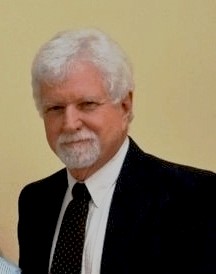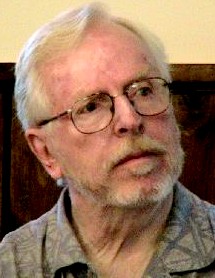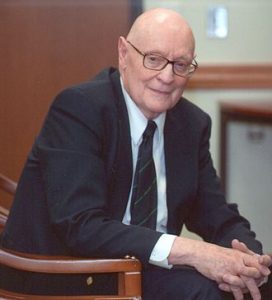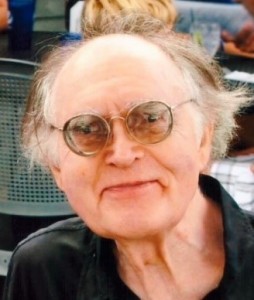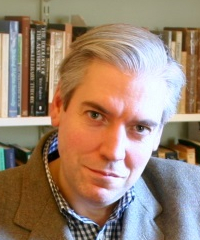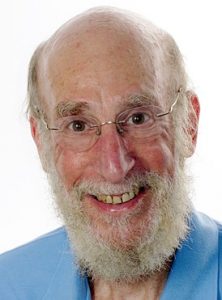 Douglas Allen is Professor of Philosophy at The University of Maine. We invited him to answer the question “What norms or values define excellent philosophy of religion?” as part of our “Philosophers of Religion on Philosophy of Religion” series.
Douglas Allen is Professor of Philosophy at The University of Maine. We invited him to answer the question “What norms or values define excellent philosophy of religion?” as part of our “Philosophers of Religion on Philosophy of Religion” series.
In the invitation to submit an essay, mention is made of norms or values that often define scientific inquiry and the question is raised as to whether these are similar to or different from norms or values that define excellent philosophy of religion. When David Rohr learned that I had just finished my most recent book on M. K. Gandhi, he suggested that I might address what norms or values are important for a philosopher of religion studying a profound religious thinker and leader such as Gandhi.
Many dominant post-Cartesian rationalist and especially empiricist modern philosophies and clearly many twentieth-century and recent philosophies have claimed that their norms or values are the same as or similar to scientific ones. Various scientific approaches and paradigms are taken as key to philosophical methodologies and theories of knowledge. During my study of Gandhi over the past three decades, I have found that such dominant norms or values are suggestive, but it is difficult to identify Gandhi’s approach to religion clearly with these classifications.
In emphasizing his theory of religion and its practical applications as “experiments with truth,” Gandhi repeatedly emphasizes such norms or values as explanatory power, empirical adequacy, and pragmatic transformative applicability. And yet many scientific thinkers and philosophers of religion—when considering Gandhi’s interpretations of religion, essential values, and normative claims—find it impossible to replicate his experiments with truth and to verify his empirical findings and applications.
Coherence is also a key norm in Gandhi’s approach to religion. However, Gandhi has little interest in various natural scientific models of theoretical coherence or traditional abstract philosophical theories of truth as coherence. How does Gandhi justify his methodological, epistemological, ontological, holistic, and organic approach and theory of religion in which religious phenomena must be integrated within an interpretive coherent framework of unified, meaningful, interconnected structural parts?
Gandhi also repeatedly emphasizes the theoretic norm of simplicity in his approach to religion and to his own moral and spiritual life: We must simplify our needs and wants, simple living is high living, etc. However, what Gandhi means by the value of simplicity and how one contextually understands and applies this value to contextualized religion and to religious human existence is usually far from simple and is often not consistent with abstract theoretical norms about simplicity.
Two key terms in the invitation and in my essay are “philosophy” and “science.” As Gandhi correctly acknowledges, he is not a philosopher in any scholarly, disciplinary, academic sense. Nevertheless, I have often submitted that he is more philosophically significant than 90% of what is being done in contemporary philosophy (and philosophy of religion). Gandhi repeatedly asserts that he is formulating a “science of ahimsa” and that he is engaged in his research and ways of living in developing “scientific” experiments of truth and nonviolence. These often incorporate scientific norms or values that shape some approaches in philosophy of religion, but Gandhi offers a radical critique of such dominant scientific and philosophical approaches.
Gandhi is concerned with theoretical norms or values, but his major focus is not on abstract theoretical criteria, but always on the primacy of practice. Gandhi is primarily a moral thinker and practitioner, and his approach to excellent philosophy of religion and his exemplary religious leadership are grounded in ethical norms and values. Theory and religion are of value only insofar as they promote life lived according to the norms of love, compassion, selfless service to others, justice, self-actualization, nonviolence, and truthful human development.
Although Gandhi is not always consistent, his primary focus is on norms and values as expressing human relations. How do religion and philosophy of religion—whether excellent or violent, immoral, untruthful, and humanly undeveloped—express how we relate psychologically, economically, politically, culturally, environmentally, and religiously to our selves, other human beings, other sentient beings, and nature?
Although it usually surprises interpreters with their stereotypes of Gandhi, he places a high value on cognitive development and reason in norms defining philosophy of religion and moral spiritual living. Gandhi repeatedly tells religious believers that if they claim that God, scripture, or religious authorities instruct them to act in ways that contradict reason, they should ignore such religious instructions. Religious norms or values are often nonrational, but never irrational.
In upholding values consistent with reason, Gandhi also critiques Kantian and other philosophical approaches to philosophy of religion and especially cognitive science, philosophy of mind, and other so-called scientific approaches to religion as falsely reductionist. The excellent philosophy of religion involves the whole person, rational and nonrational, and incorporates norms and values revealing the integrated transformative mind-body-heart (soul) unity of self-actualized religion and human existence.
In developing norms and values defining excellent philosophy of religion and exemplary satyagrahi moral and spiritual leadership, Gandhi formulates a key controversial distinction and necessary dialectical relation between the absolute and the relative. Gandhi certainly upholds foundational essentialized absolute norms of Truth or Satya often used interchangeably with Being, what is Real, God, Soul, Self, Love, and Nonviolence. He knows such Realty because he has experienced such moral and spirituals Absolutes. But as a limited, embodied, contextually situated human being, Gandhi at most has temporary imperfect “glimpses” of the Absolute Truth (God, pure Religion, pure Ethics, perfect Nonviolence). It is false and dangerous for any religion or religious leaders to claim their norms and values allow them to experience fully the perfect and only Absolute Truth (God, the only true religion and religious path, etc.). Other religious approaches and leaders are then by definition false, evil, and a threat to our exclusive Absolute Truth. This repeatedly leads to divisiveness, intolerance, conflict, hatred, violence, and war, and to the rejection of Gandhi’s moral and ontological norms of our essential interconnected oneness and unity, but a unity with a respect for differences.
Gandhi, in his value-based philosophy of religion, religious life, and religious leadership, focuses primarily on addressing relative truth as we relate to our experiential world of multidimensional and structural violence, complex contextualized relations of truth and untruth, and open-ended experiments in living that include resistance, noncooperation, and constructive moral and spiritual alternatives. In Gandhi’s theoretical and practical study of religion and religious living, we are attempting to move from relative truth to greater moral and spiritual relative truth closer to, but never fully realizing, the ideal of Absolute Truth.
This challenges us with complex dynamic relations of norms and values. Religious norms, grounded in experiential glimpses and imaginatively constructed absolute ideals, are necessary. They provide the regulative ideals for understanding the contextualized applications and practices of an excellent philosophy of religion and exemplary religious leaders and others living in a world of relative truths, morality, and spirituality. Absolute values and norms express what is not fully actualized in the relative world, but they provide faith, energy, hope for living closer to the value-informed ideals.
Such a Gandhi-informed approach leaves us with challenges for relating to excellent philosophy of religion and for understanding how a remarkable human being such as Gandhi lived. How does this approach allow us to relate to other religions and other religious persons? How do we verify Gandhi’s claims to absolute truth and its necessary integral relations with our world of relative truths? How does a Gandhian approach to values help us to understand and relate to religions and religious persons who express anti-Gandhian norms: that they have fully and perfectly realized the one, exclusive Absolute Truth and Reality, the only true path, and reject Gandhi’s ethical and ontological values and interpretive framework and practices?
My own view is that in a contemporary world of so much religious violence, conflict, hatred, and hierarchical injustice and oppression, Gandhi’s dynamic, holistic, open-ended approach to norms and values challenges us to rethink and reformulate new and creative philosophies of religion. As a remarkable but flawed human being, Gandhi’s approach is often necessary but not sufficient in developing norms and values of excellent philosophy of religion. It is of great significance theoretically and for practical human development and for global sustainability and survival.


